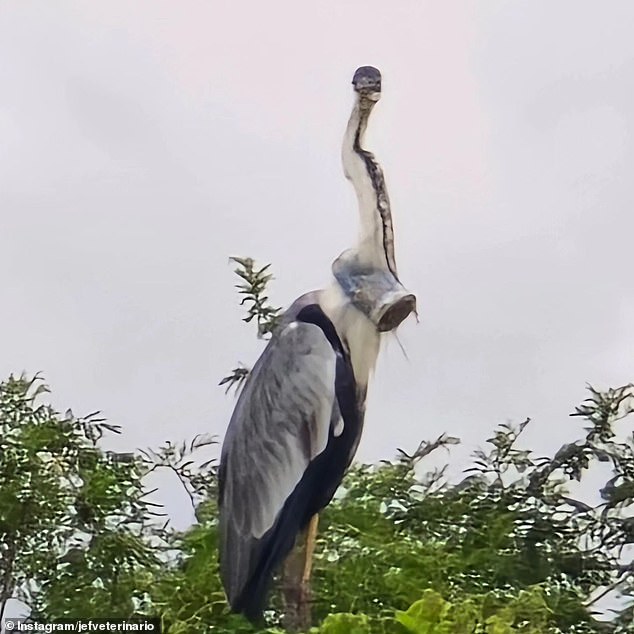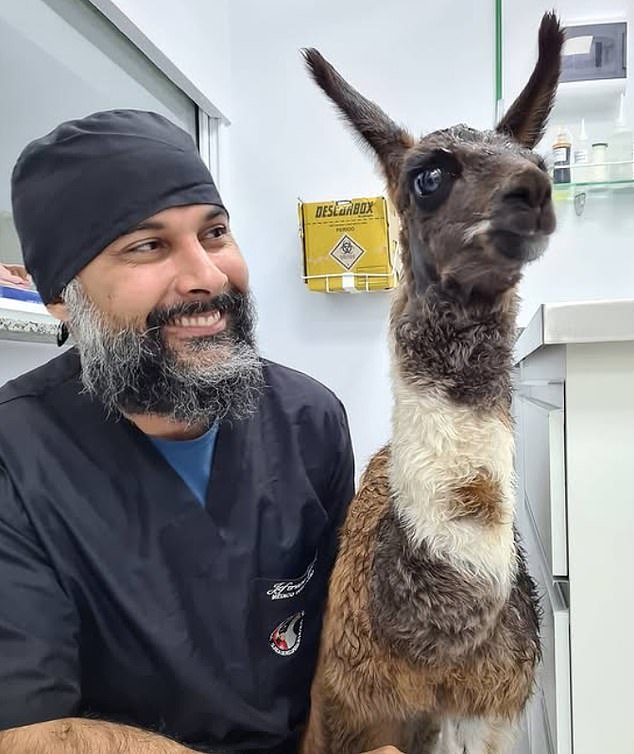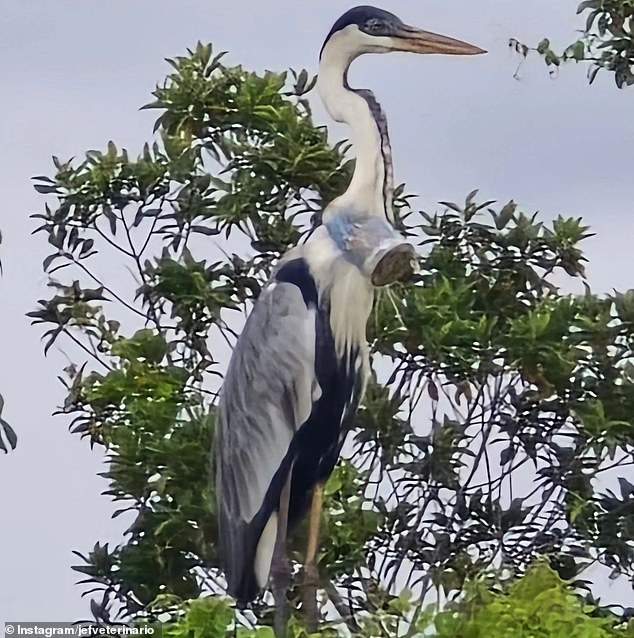A veterinarian in Brazil has captured a heartbreaking image of a heron with a plastic cup stuck in its throat
Jeferson Pires, a veterinarian and biologist, was driving in Rio de Janeiro on Monday when he came across the bird.
Pires approached the animal and was able to take a handful of photos before it flew towards a tree.
“This is the result of the irresponsibility of people who dispose of their waste incorrectly and throw it in irregular places, even if it is a big city with a waste collection system,” he wrote in an after on his Instagram account.
‘Of course, reducing the use of plastic could also reduce the risk of this happening, but unfortunately people still don’t care much about our environment and think this is happening far from where they live.’
Wondering how long the bird could survive, he told DailyMail.com that he believes the animal swallowed the cup on the same day he took the photo.
“If he was fed, I think he would survive about five days,” Pires said.
Jeferson Pires, a veterinarian and biologist, was driving in Rio de Janeiro on Monday when he came across the bird

Pires fears that the presence of the cup in the heron’s neck will prevent it from consuming food

Pires, a veterinarian and biologist, specializes in wildlife care and surgery
In his Instagram post, Pires recalled having to remove the head of a Peppa Pig toy from an alligator’s stomach.
“It is worth remembering that those who come into my care may not be one-hundredth of those actually affected,” he wrote.
‘Most of them become isolated and die without anyone to save them. A slow and painful death that affects millions of animals around the world every day.’
Pires told DailyMail.com that he tried to locate the heron on Wednesday and Thursday, but was unable to find it because the area was difficult to access.
Pires’ biggest concern is that the bird, identified as a Cocoi heron, the largest heron species in Latin America, could fall victim to another animal looking for food.
“Wild animals often hide their pain, otherwise they are quickly preyed upon,” he explained.
Although Pires said he has seen many animals with plastic in their stomachs, “in the 20 years I have been treating these animals, I have never had a case like this.”
The vet and a local wildlife center are making a joint effort to monitor and save the bird.

